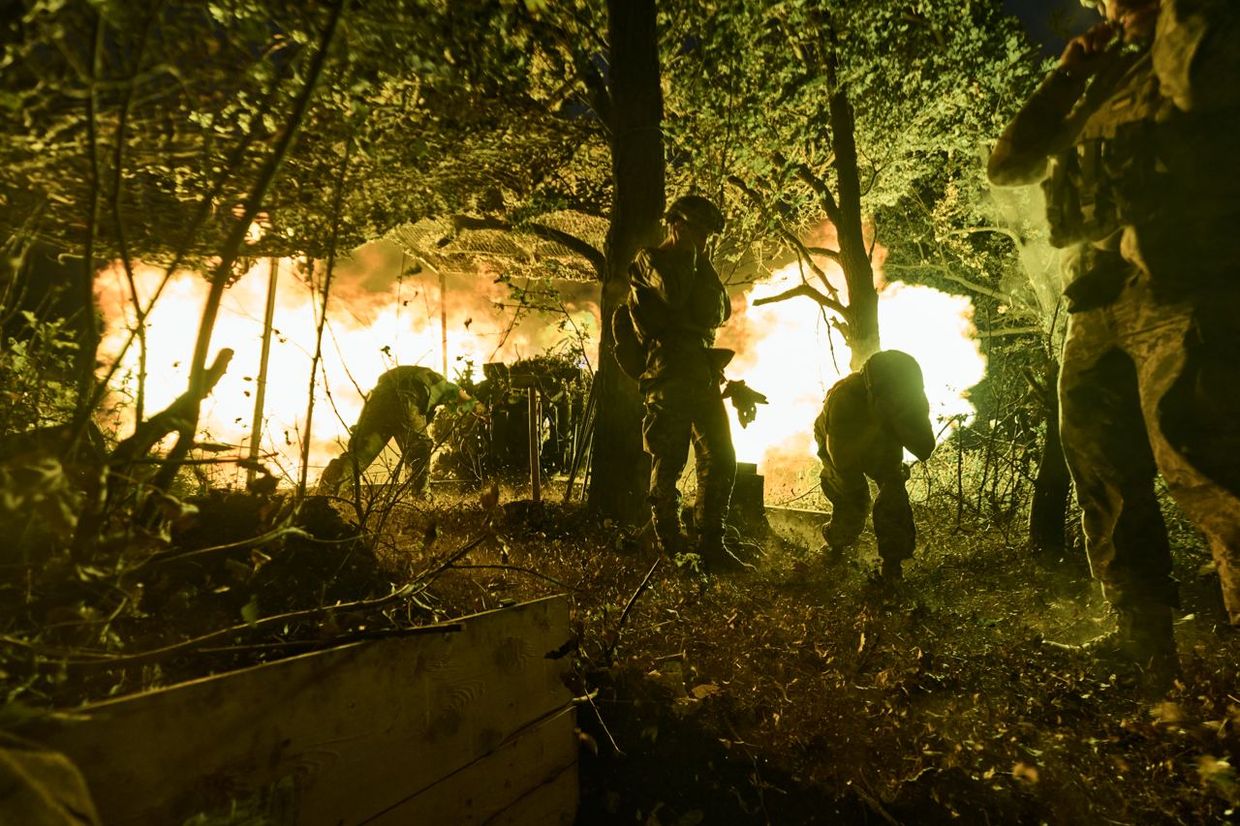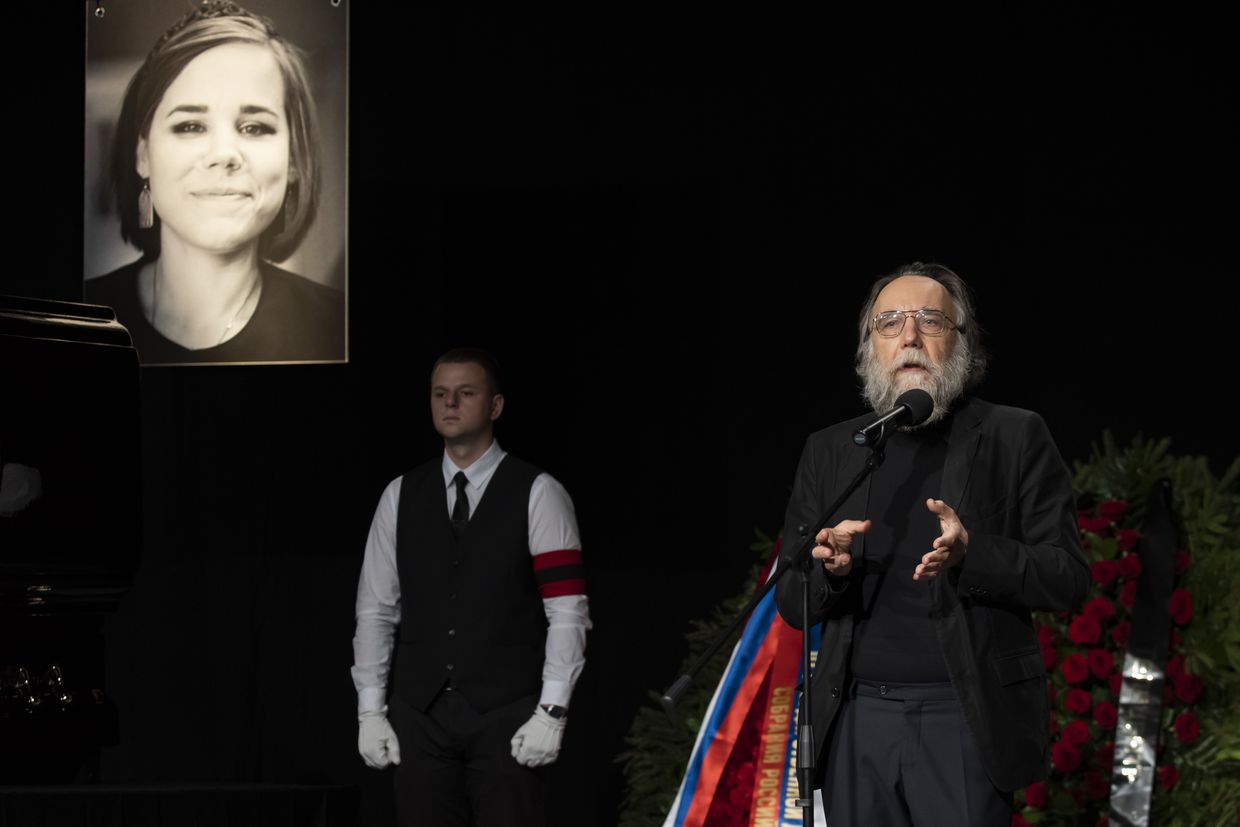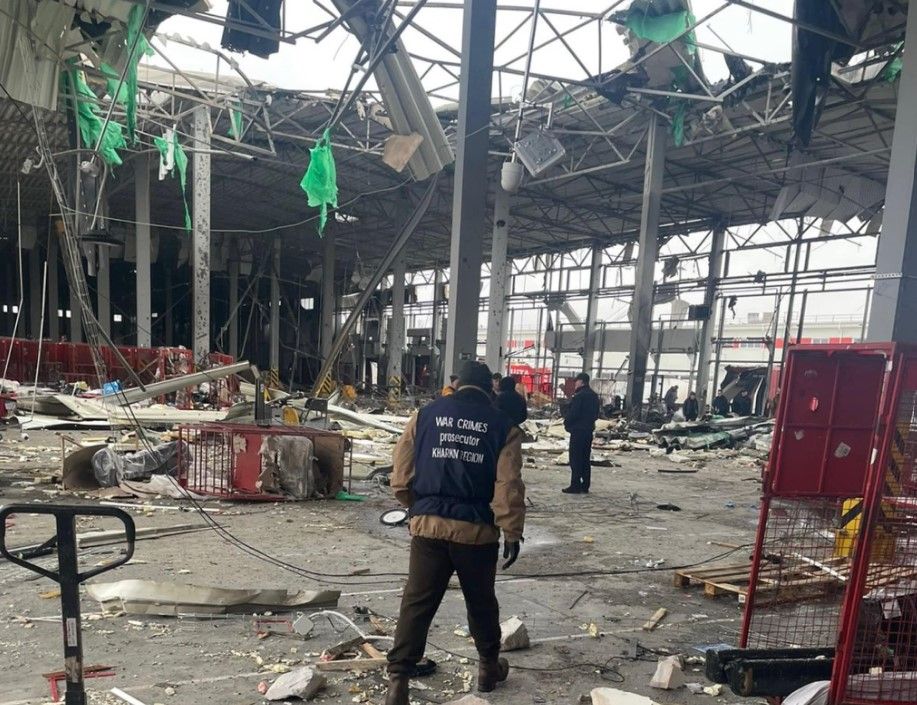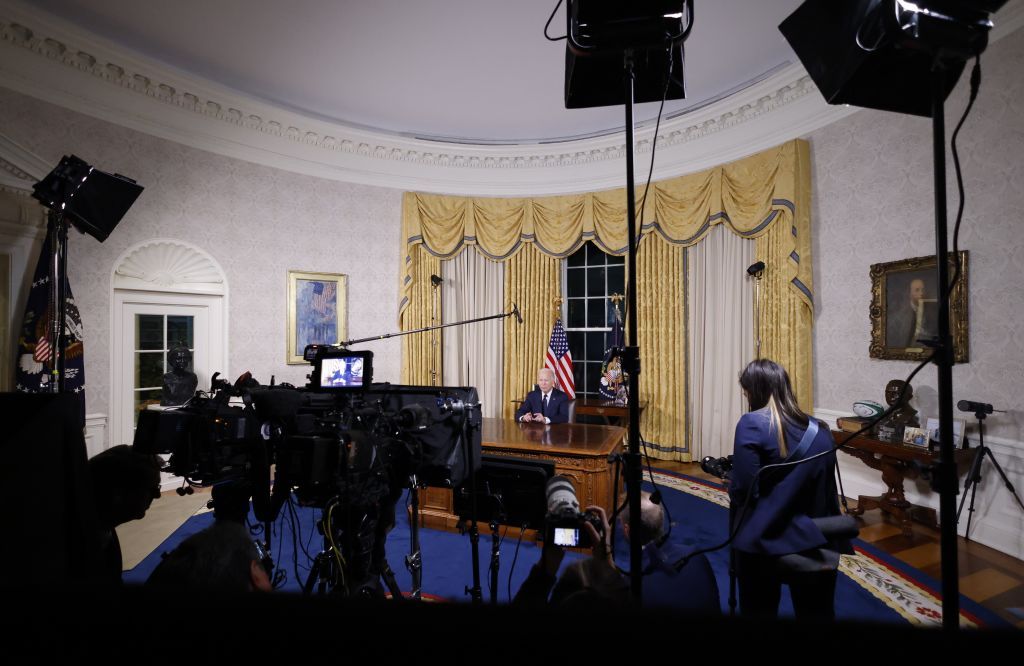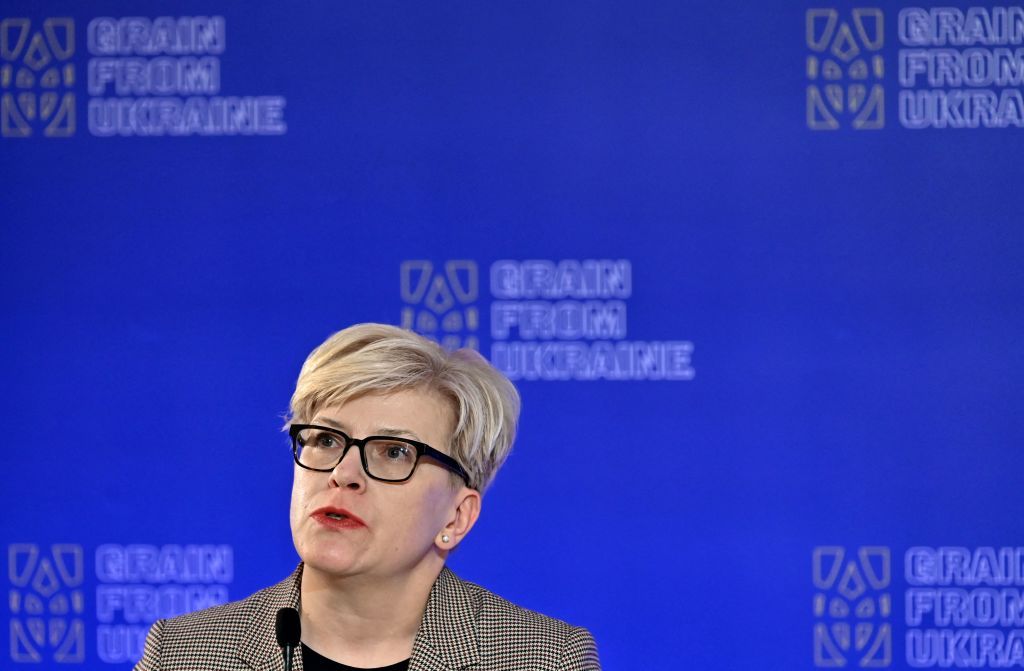Ukraine war latest: Russia attacks in multiple directions on eastern front

Key developments on Oct. 23:
- Ukraine conducts 'high-value' assassinations inside Russia, says media
- Military enlistment officials suspected of illegally acquiring $7 million
- Official: 5 victims of Russian attack on postal depot in intensive care
- Bild: German defense ministry concerned about insufficient funds for Ukraine in 2024
- Lithuanian Foreign Minister: Russia using West's focus on other crises to renew attacks on Ukraine
- Switzerland shifts right as populists win parliamentary elections
Russian forces are launching heavy attacks in many sectors of the eastern front, including in the Avdiivka, Kupiansk, Lyman, Bakhmut, and Marinka directions, the General Staff of Ukraine's Armed Forces reported on Oct. 23.
There have been over 90 skirmishes with Russian forces recorded over the course of Oct. 22 on all fronts, the report said. The past few days saw an unusually high daily number of clashes, sometimes double the mid-October numbers.
Russia continues in its attempts to encircle the front-line town of Avdiivka in Donetsk Oblast while suffering heavy losses, the General Staff said.
According to Vitalii Barabash, the head of the Avdiivka military administration, Russian forces are heavily shelling a vital road connection to the town.
The shelling complicate the evacuation of civilians and the import of humanitarian aid, the official told Radio Free Europe/Radio Liberty (RFE/RL).

Russia launched attacks in multiple vectors along the Lyman-Kreminna-Kupiansk line, including at Synkivka, Ivanivka, Nadiia, and the Serebriansky Forest, according to the General Staff.
Moscow has been concentrating a large force in the Lyman-Kupiansk direction in Ukraine's northeast, at least since the summer, likely in an attempt to divert Kyiv's attention and resources from other sectors.
Russian troops have also been trying to "cut off" Mariinka, a border guard serviceman said on Telegram. Mariinka is another front-line town of Donetsk Oblast that has long been a flashpoint of hostilities on the eastern front.
According to Volodymyr Fitio, a spokesperson of Ukraine's Ground Forces, Russia has failed to achieve any strategic success on the eastern front as Ukrainian forces are holding their defenses.
"At the moment, the Russians haven't tried anything new in terms of tactics, but they are pulling up reserves from all over Russia, trying to push through our defense lines," Fitio said on TV.
"Currently, they achieve no strategic successes. Ukrainian soldiers are actively defending. This gives us an opportunity to both defend and, in suitable moments, attack."
Ukraine conducts 'high-value' assassinations inside Russia, says media
The Washington Post reported on Oct. 23, citing undisclosed official sources, that Ukraine's Security Service (SBU) was allegedly behind dozens of assassinations against Russian targets since February 2022.
The news outlet writes that the Security Service's operations included the killing of Russian Navy officer Stanislav Rzhytskyi in Krasnodar and the bombing of a St. Petersburg cafe that killed Russian military blogger Vladlen Tatarsky.
Intelligence obtained by the SBU allowed successful strikes on high-value military targets, killing several other Russian commanders and only narrowly missing Russia's top general, Valery Gerasimov, the news outlet said.
Ukraine reportedly attempted to strike at Gerasimov when he was visiting Russian troops in April. While senior high-ranking officers were said to have been killed in the attack, Gerasimov escaped with his life.
The New York Times reported earlier that U.S. intelligence asked Ukraine to call off the attempted strike at Gerasimov, fearing an escalation with Moscow. However, the message arrived too late, and the attack went ahead, the report said.
The Washington Post also writes that the car bombing that killed propagandist Darya Dugina, was conducted by the SBU, while her father, ultranationalist Alexander Dugin, was the intended target of the attack.
Dugina died in a car bombing in August 2022 near Moscow.
The New York Times reported several months later that the Ukrainian government was responsible for her death, an accusation denied by Kyiv.
Dugina's father is a Russian ultranationalist currently wanted by the SBU for promoting genocide against Ukraine. His daughter was a well-known Russian propagandist.
"All targets hit by the SBU are completely legal," the Security Service's Head Vasyl Malyuk told the Washington Post, without referring to any concrete cases.
He nevertheless added that Ukraine "does everything to ensure that fair punishment will 'catch up' with all traitors, war criminals, and collaborators."
The Security Service later said that it will comment on special operations "after victory," not denying but also not confirming its involvement in high-profile assassinations.
Governor: 5 victims of Russian attack on postal depot in intensive care
Five people injured in a Russian attack on a postal depot in Kharkiv Oblast on Oct. 21 remain in intensive care, Governor Oleh Syniehubov said on air on Oct. 23.
The victims were at work when a Russian S-300 missile hit the depot, killing six people and injuring 17 more.
In total, 16 people remain in the hospital, seven of whom are in serious condition, Syniehubov said.
Most of those injured, who were aged 19 to 42, received shrapnel injuries.
The bodies of the six people killed were identified on Oct. 22.
The identification of one person required DNA analysis, as the body was "badly burned," Serhii Bolvinov, the head of the investigative department of the regional police, said on Oct. 22.
The depot belongs to Nova Poshta, Ukraine's largest private postal company.
"This is an exclusively civilian site, the Russians committed yet another terror against the civilian population of Kharkiv Oblast," Syniehubov said following the strike.
Bild: German defense ministry concerned about insufficient funds for Ukraine in 2024
The German government has not yet budgeted enough funds to be able to deliver enough military aid to Ukraine in 2024, German media outlet Bild reported on Oct. 22, citing a confidential Defense Ministry memo.
The 2024 budget will be approved in mid-November.
Still, the Defense Ministry is concerned that the current draft budget leaves only 120 million euros ($127.2 million) for new military support to Ukraine next year once existing commitments are subtracted.
While the Finance Ministry has earmarked four billion euros ($4.2 billion) for military support to Ukraine next year, the Defense Ministry has calculated that 3.1 billion euros ($3.3 billion) will go to projects that have already been announced, according to Bild.
Another 770 million euros ($816 million) will go to the Foreign Ministry's aid programs, leaving just 120 million for new military aid support to Ukraine in 2024.
The Defense Ministry expects to need billions more to meet Ukraine's needs for military support, Bild reported.
This includes 880 million euros ($932 million) for air defense, 675 million ($715 million) for armored combat vehicles, 390 million ($413 million) for combat engineering, 935 million ($990 million) for protective equipment, and 2.34 billion ($2.48 billion) for repairs, spare parts, and logistics.
"Ukraine must be able to rely on Germany’s promises,” Andreas Schwarz, the lawmaker responsible for the defense budget in the German parliament's budget committee, told Bild.
"It must not be the case that we run out of financial steam when it comes to aid to Ukraine next year," Schwarz said.
Negotiations to finalize the budget are currently ongoing. German Finance Minister Christian Lindner said in August that Germany plans to provide Ukraine with 5 billion euros ($5.3 billion) in annual military aid until 2027.
Germany is the world's largest provider of military aid to Ukraine after the U.S.
Lithuanian Foreign Minister: Russia using West's focus on other crises to renew attacks on Ukraine
Increased attention from the West to crises in other regions of the world is a situation Russia wants to use to its advantage, Lithuanian Foreign Minister Gabrielius Landsbergis said on Oct. 23.
Russia's renewed offensive shows that the Kremlin is "waiting for situations like this, where we draw our attention to somewhere else so they can renew their attacks," Landsbergis told the press ahead of the EU’s Foreign Affairs Council meeting in Luxembourg.
"We cannot keep our eyes off Ukraine."
Europe must also learn to be able to respond to multiple crises simultaneously, he said.
The ongoing Russian invasion of Ukraine, however, must remain a priority because it is "happening on our border," Landsbergis believes.
If Ukraine's independence is secured, "the world can expect to go back to normal and to stability," he concluded.
Foreign ministers from across the EU discussed the situation in Ukraine, Israel, and developments between Armenia and Azerbaijan, among other foreign policy issues, at the Foreign Affairs Council meeting on Oct. 23.



